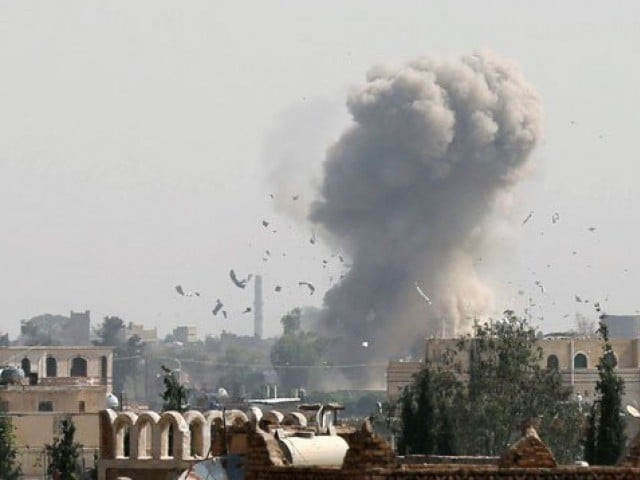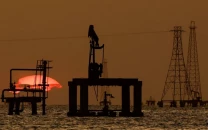Deadly clashes in Yemen rebel ranks spark fears of 'strife'
The war has pushed the country to the brink of famine, and killed more than 8,400 civilians

PHOTO: AFP
An anti-government alliance between Saleh and rebel leader Abdul Malik al-Huthi has crumbled over the past week, with the two accusing each other of treason and back-stabbing.
Witnesses in the capital, which Saleh and Huthi jointly control, said the ex-president's forces had spread in southern parts of the city near the presidential offices, which Saleh still holds despite resigning in 2012.
US Black Hawk helicopter crashes off Yemen, one service member missing
They said the forces had deployed in Sabaeen Square and the district of Hadda.
Saleh's General People's Congress party said in a statement on Sunday that "remaining silent on the incident would open the door to strife that would be difficult to contain".
Colonel Khaled al-Rida, the deputy head of foreign relations in the GPC, was killed in the clashes between supporters of Saleh and Abdul Malik al-Huthi late Saturday, the statement said.
A source within the GPC said the clashes erupted at a Huthi rebel checkpoint in Hadda after a dispute between fighters manning the checkpoint and armed supporters of Saleh who were driving by.
The rebel-run Saba news agency said two members of the Popular Committees, a tribal alliance largely dominated by the Huthis, were also killed.
Saleh and Huthi joined ranks in 2014 in a shock alliance that drove the internationally recognised government out of Sanaa and into the southern province of Aden.
From its inception, analysts have viewed the alliance as a tactical move by both sides, with rebels exploiting Saleh's political power and the former president benefitting from the Huthi's guns on the ground.
But in the past week, a war of words between Saleh and Huthi has escalated, with Saleh hinting that his allies were merely "a militia" and the rebels warning the former president was a "back-stabber" and "traitor" who would "bear the consequences" of the insult.
The most recent clashes have added fuel to the fire, with the GPC statement accusing a "group that knows no morality or oaths" of being behind the colonel's killing - a thinly-veiled reference to the Huthis.
The Huthis reportedly suspect Saleh has been negotiating with a Saudi-led military coalition that supports the Aden-based government.
Saleh, meanwhile, is said to be displeased with the Huthis' newfound power in the capital, where they run a number of key offices.
The Saudi-led coalition entered Yemen's war in March 2015 in support of President Abedrabbo Mansour Hadi's government against the Iran-backed rebels and Saleh.
The war has since then pushed the country to the brink of famine, and killed more than 8,400 civilians - including in coalition air strikes.
Civilians killed in air raid on Yemen capital
The coalition on Saturday claimed responsibility for an air strike in the Yemeni capital that killed 14 civilians the previous day, which it called a "technical mistake".
On Friday, the United Nations human rights office that air raids by the coalition had killed 42 civilians in Yemen in the past week, with multiple children among the dead.
The country also faces a deadly cholera outbreak that has claimed nearly 2,000 lives and affected more than half a million people since late April.



















COMMENTS
Comments are moderated and generally will be posted if they are on-topic and not abusive.
For more information, please see our Comments FAQ